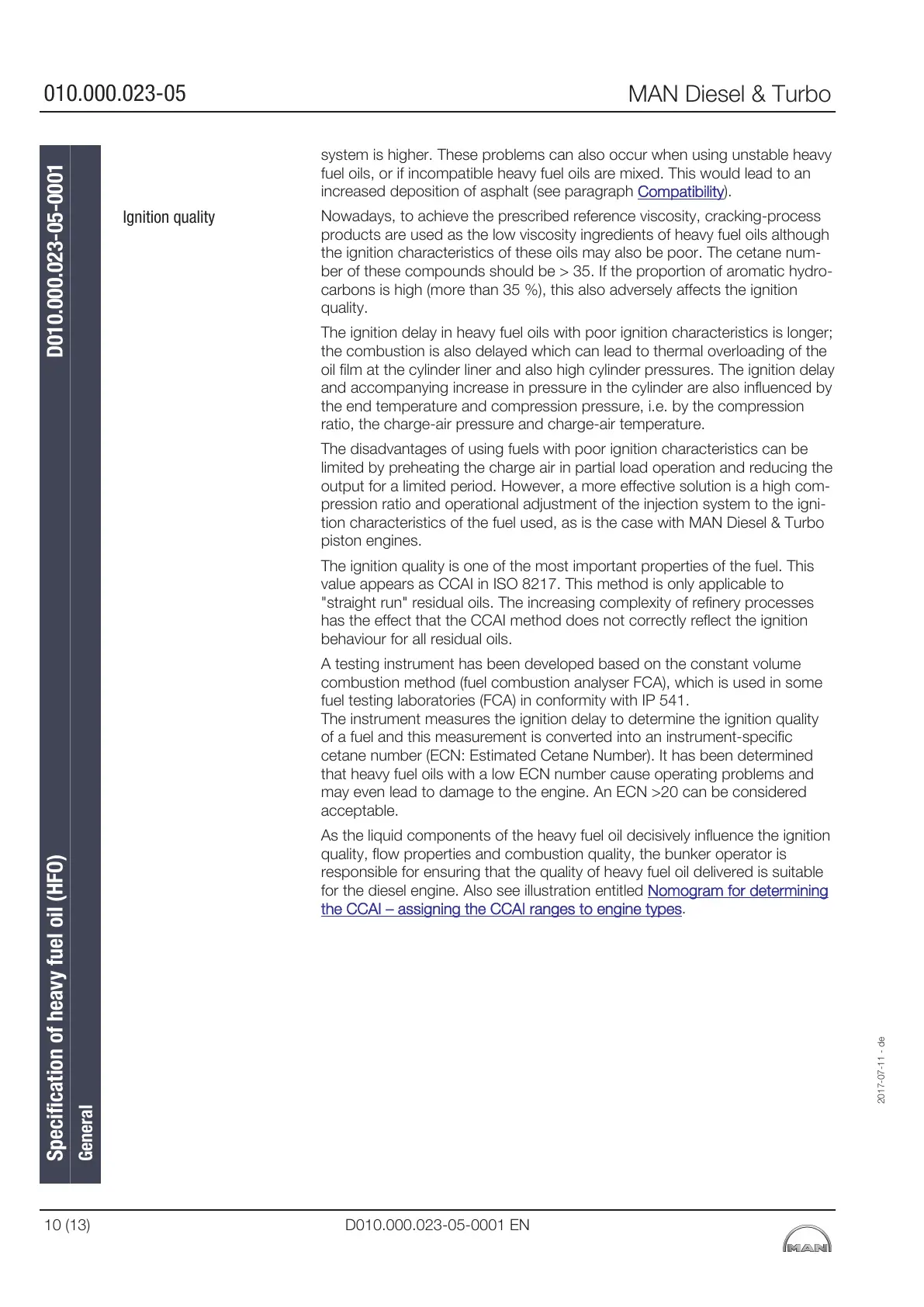system is higher. These problems can also occur when using unstable heavy
fuel oils, or if incompatible heavy fuel oils are mixed. This would lead to an
increased deposition of asphalt (see paragraph Compatibility).
Nowadays, to achieve the prescribed reference viscosity, cracking-process
products are used as the low viscosity ingredients of heavy fuel oils although
the ignition characteristics of these oils may also be poor. The cetane num-
ber of these compounds should be > 35. If the proportion of aromatic hydro-
carbons is high (more than 35 %), this also adversely affects the ignition
quality.
The ignition delay in heavy fuel oils with poor ignition characteristics is longer;
the combustion is also delayed which can lead to thermal overloading of the
oil film at the cylinder liner and also high cylinder pressures. The ignition delay
and accompanying increase in pressure in the cylinder are also influenced by
the end temperature and compression pressure, i.e. by the compression
ratio, the charge-air pressure and charge-air temperature.
The disadvantages of using fuels with poor ignition characteristics can be
limited by preheating the charge air in partial load operation and reducing the
output for a limited period. However, a more effective solution is a high com-
pression ratio and operational adjustment of the injection system to the igni-
tion characteristics of the fuel used, as is the case with MAN Diesel & Turbo
piston engines.
The ignition quality is one of the most important properties of the fuel. This
value appears as CCAI in ISO 8217. This method is only applicable to
"straight run" residual oils. The increasing complexity of refinery processes
has the effect that the CCAI method does not correctly reflect the ignition
behaviour for all residual oils.
A testing instrument has been developed based on the constant volume
combustion method (fuel combustion analyser FCA), which is used in some
fuel testing laboratories (FCA) in conformity with IP 541.
The instrument measures the ignition delay to determine the ignition quality
of a fuel and this measurement is converted into an instrument-specific
cetane number (ECN: Estimated Cetane Number). It has been determined
that heavy fuel oils with a low ECN number cause operating problems and
may even lead to damage to the engine. An ECN >20 can be considered
acceptable.
As the liquid components of the heavy fuel oil decisively influence the ignition
quality, flow properties and combustion quality, the bunker operator is
responsible for ensuring that the quality of heavy fuel oil delivered is suitable
for the diesel engine. Also see illustration entitled
Nomogram for determining
the CCAI – assigning the CCAI ranges to engine types.
Ignition quality
Specification of heavy fuel oil (HFO) D010.000.023-05-0001
General
2017-07-11 - de
010.000.023-05
MAN Diesel & Turbo
10 (13) D010.000.023-05-0001 EN

